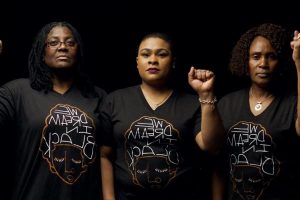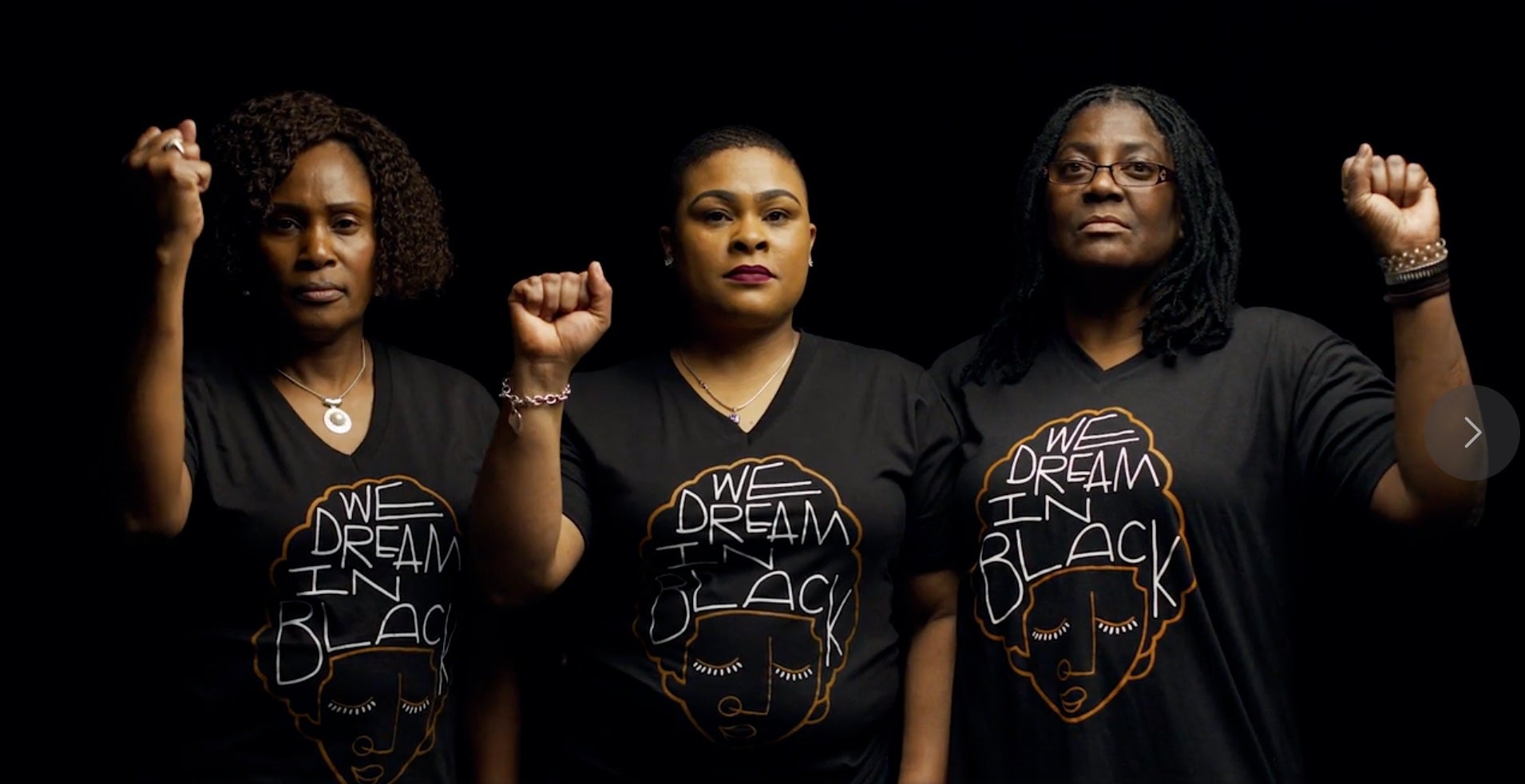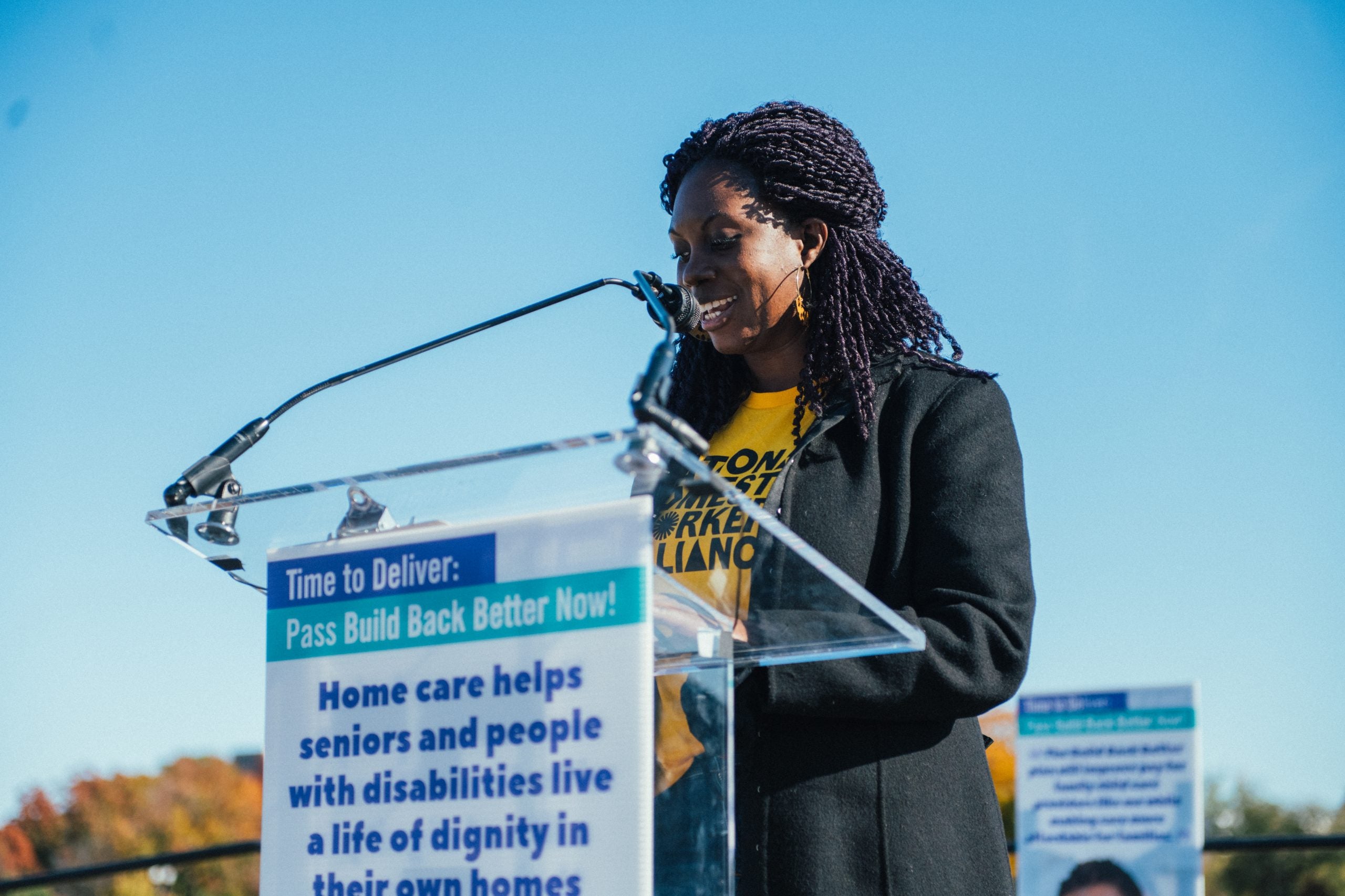The Invisible Workforce: The Impact Of Injustice On Black Domestic Workers

Lydia N* has been a homecare worker in Massachusetts, where she takes care of others and assists them in their daily routines. It’s a job that she loves and has done for almost 14 years.
When the coronavirus pandemic caused a global shutdown, Lydia went from caring for others to wondering how she would be able to take care of herself or her family if she got sick on the job due to the virus.
“As a domestic worker, I don’t have a lot of the things that other workers may have. I don’t have health insurance because of my status. I can’t afford to get sick. I don’t’ have many of those protections… it’s a common thing, specifically if you’re undocumented,” she told ESSENCE. “Even those who are documented, they often don’t have health insurance, sick days, or time off, but we all need those things,” she added.
She doesn’t get paid time off either and often had to supply her own personal protective equipment (PPE) when caring for elderly patients at the height of the COVID-19 outbreak.
As an undocumented immigrant from Uganda, Lydia couldn’t apply for any form of government assistance even when she lost her job and was without work for close to a year. These issues she’s faced as a domestic worker didn’t begin with the pandemic and go far beyond it.
Even before the pandemic, most domestic workers had no healthcare or other benefits. They were largely not protected by workplace laws, and the most vulnerable among them – Black immigrant domestic workers – were often unable to access resources being offered to help individuals and families survive a job loss, illness, potential eviction and hunger.
Lydia is just one of over 2.2 million domestic workers across the country whose roles as personal caregivers, nannies and housecleaners/ housekeepers are vital to the economy. This industry is disproportionately made up of women of color and immigrants. Their jobs help make work possible for people who must work away from home. However, the challenges Black domestic workers have faced as essential workers both before and during the pandemic have often gone unnoticed. “Our work is not valued and a lot of us, including undocumented immigrants, are doing jobs that are making other people’s work easier. But during the pandemic, we were the ones who had the most struggles,” she said. A new report by The National Domestic Workers Alliance’s (NWDA), We Dream In Black program and The Institute for Policy Studies (IPS) looks at how one year of COVID-19 has impacted Black domestic workers like Lydia, who were some of the hardest hit by the pandemic. “Something we often say is you can really get a pulse on the workforce when you look at domestic workers,” NDWA Executive Director, Jen Stowe told ESSENCE. “I think because we know the way that marginalization in this country works, we know how oppression works and the intersections of oppression, it makes total sense to look at Black immigrant domestic workers in order to really get a lay of the land on the lack of care infrastructure that we have in the country, especially in the last two years.” Article continues after video. https://youtube.com/watch?v=0F-2taeshnY%3Ffeature%3Doembed The Other Side of the Storm: What Do Black Immigrant Domestic Workers in the Time of COVID-19 Teach Us About Building a Resilient Care Infrastructure is a follow-up to a 2020 report. That report, Notes from the Storm: Black Immigrant Domestic Workers in the Time of -COVID-19 surveyed over 800 workers in Massachusetts, Miami-Dade, Florida, and New York City who shared their experiences dealing with issues such as housing insecurity, a high rate of job loss and safety vulnerability due to a lack of healthcare, PPE and worker protections typically afforded to other essential care workers. In 2021, IPS and NWDA returned to the same pool of workers in the same three regional areas. Over 1,000 workers responded, resulting in a critical data report. That report shared exclusively with ESSENCE revealed that Black immigrant domestic workers who were already vulnerable pre-pandemic due to their intersectional identities as Black, immigrant women, who in some cases are undocumented faced even greater vulnerability to exploitation, wage theft, and a lack of safety in dangerous circumstances. The pandemic only exacerbated these issues. Forty-one percent of domestic workers reported that COVID-19 led to fewer work hours, which is up 25 percent from 2020. The majority of those surveyed said that they did not receive benefits from their employers, such as paid time off or paid medical or health insurance. Other major concerns for domestic workers included whether they would face housing insecurity or disruption in necessities like utility services due to job instability. When first interviewed in 2020, 65 percent said they were fearful about eviction or loss of utility services. In 2021, 41 percent shared that they were forced to relocate, faced eviction, or had their utility services disrupted because they were unable to pay rent or other bills during the pandemic. Overall, 68 percent of domestic workers are in roles in which they do not have an employment contract. These staggering statistics are why advocates say there is a major need for change in order to provide domestic workers with the support and protection they need. “We need laws, we need a safety net. We do the work that makes all other work possible…we are the threads that weave society together, so we deserve these protections,” said June Barrett, a homecare worker in Miami and a leader of NDWA’s We Dream in Black Project. Barrett, a Jamaican immigrant who identifies as queer has been a domestic worker for decades and says these basic protections should exist but don’t because the industry is like a “free for all” with not much regulation and they want that to change. “We are hoping that with this survey, folks will see the need on every level possible, whether they are going to be funding our campaign, or they’re going to be becoming strong allies, we need that help and need support,” they said. The National Domestic Workers Alliance is calling on Congress to act by investing in childcare and Medicaid’s home and community-based services (HCBS), which would raise wages and standards for home care workers and to also create a path to citizenship for those workers who are undocumented. The organization has successfully passed a Domestic Worker Bills of Rights in ten states and two cities. With crucial data from this new report, it is also calling on Congress to pass a National Domestic Workers Bill Of Rights in order to increase protections and raise standards for workers across the country. “I’m almost sixty years old and I would like to pass this baton, you know to the new generation of nannies, house cleaners, caregivers because we’ll always have people, workers like myself in societies. We are vital and our voices should be heard,” said Barrett. Editor’s Note: In sharing Lydia’s story we did not use her last name in order to protect her privacy as an undocumented worker. Toggle panel: Slides Before/After slider or Gallery? Gallery Slide Before/After Slides Select LayoutList ViewSlide View Gallery Slide Images Upload Image Toggle panel: Article Custom Code-Block Insertion Toggle panel: General + Newsletter Tout Information Tout Headline: VisualText Tout Deck Tout Image Upload Image Newsletter Tout Headline: VisualText Newsletter Tout Deck Toggle panel: Yoast SEO Premium Focus keyphraseHelp on choosing the perfect focus keyphrase(Opens in a new browser tab)Get related keyphrases Preview as:Mobile resultDesktop resultUrl preview: Jun 16, 2022 - In celebration of Domestic Workers Day, The National Domestic Workers Alliance tells ESSENCE how Black immigrant domestic workers are impacted.SEO titleInsert variableTitle Page Separator Site title SlugMeta descriptionInsert variableIn celebration of Domestic Workers Day, The National Domestic Workers Alliance tells ESSENCE how Black immigrant domestic workers are impacted. Toggle panel: Related Content VisibilityPublicPublishImmediatelyPending reviewEnable AMPMove to trash Readability analysis: Needs improvement SEO analysis: OK URL Slug The last part of the URL. Read about permalinks(opens in a new tab) https://www.essence.com/news/impact-injustice-black-domestic-workers/(opens in a new tab) Toggle panel: Content TypeArticleGalleryVideoImage SlideCommerce Toggle panel: Native Article Is article sponsored? Campaign Start Date Campaign End Date Client Campaign PauseManage All Native Articles Toggle panel: Misc Disable Automatic Video Disable Adhesion Ad Unit Disable Infinite Scroll Hide Essence Related Content Links? Hide ads on this article? Hide from channels? Hide from Homepage? Opinion Facebook Pixel Code: Twitter Pixel Code: Simplereach Tags: View “We need laws, we need a safety net. We do the work that makes all other work possible…we are the threads that weave society together, so we deserve these protections,” said June Barrett, a homecare worker in Miami and a leader of NDWA’s We Dream in Black Project. Barrett, a Jamaican immigrant who self-identifies as queer has been a domestic worker for decades and says these basic protections should exist but don’t because the industry is like a “free for all” with not much regulation and they want that to change. “We are hoping that with this survey, folks will see the need on every level possible, whether they are going to be funding our campaign, or they’re going to be becoming strong allies, we need that help and need support,” they said. The National Domestic Workers Alliance is calling on Congress to act by investing in childcare and Medicaid’s home and community-based services (HCBS), which would raise wages and standards for home care workers and to also create a path to citizenship for those workers who are undocumented. The organization has successfully passed a Domestic Workers Bill of Rights in ten states. With crucial new data from this new report, it is also calling on Congress to pass a National Domestic Workers Bill Of Rights in order to increase protections and raise standards for workers across the country. “I’m almost sixty years old and I would like to pass this baton, you know to the new generation of nannies, house cleaners, caregivers because we’ll always have people, workers like myself in societies. We are vital and our voices should be heard,” said Barrett.Slides
Video Slide
Commerce Slide
Before/After SlideArticle Custom Code-Block Insertion
General + Newsletter Tout Information
VisualText
Note:
– This section will only be used on Newsletter template
– If this section is not filled, then Tout Headline/Deck will be preferred
– If Tout Headline/Deck is not present, then Article Headline/Deck will be preferred
VisualTextParagraph Yoast SEO Premium
Google preview
www.essence.com › news › impact-injustice-black-domestic-workersSEO title preview:The Invisible Workforce: The Impact Of Injustice On Black Domestic Workers – …Meta description preview:
SEO analysisOKBlack Immigrant Domestic Workers
Track SEO performance
Advanced
Related Content
Status & visibility
Yoast SEO
Improve your post with Yoast SEO6 RevisionsPermalink
VIEW ARTICLE
Content Type
Native Article
Article is sponsored, hide ads and injected widgets within content.
Select… Sears TEST
Select… test Test Campaign Misc
Is Knotch Test
Add Knotch Tag.
Disable automatic inline video on article.
The bottom ad on mobile will not render.
No additional articles will load at the bottom.
Hide all internal content links (below / right).
Hide ads on article.
Removes article from being displayed on above selected channels.
Removes article from being displayed the Homepage.
Opinion piece
Open publish panel
Editor’s Note: In sharing Lydia’s story we did not use her last name in order to protect her privacy as an undocumented worker.
Source: Read Full Article

